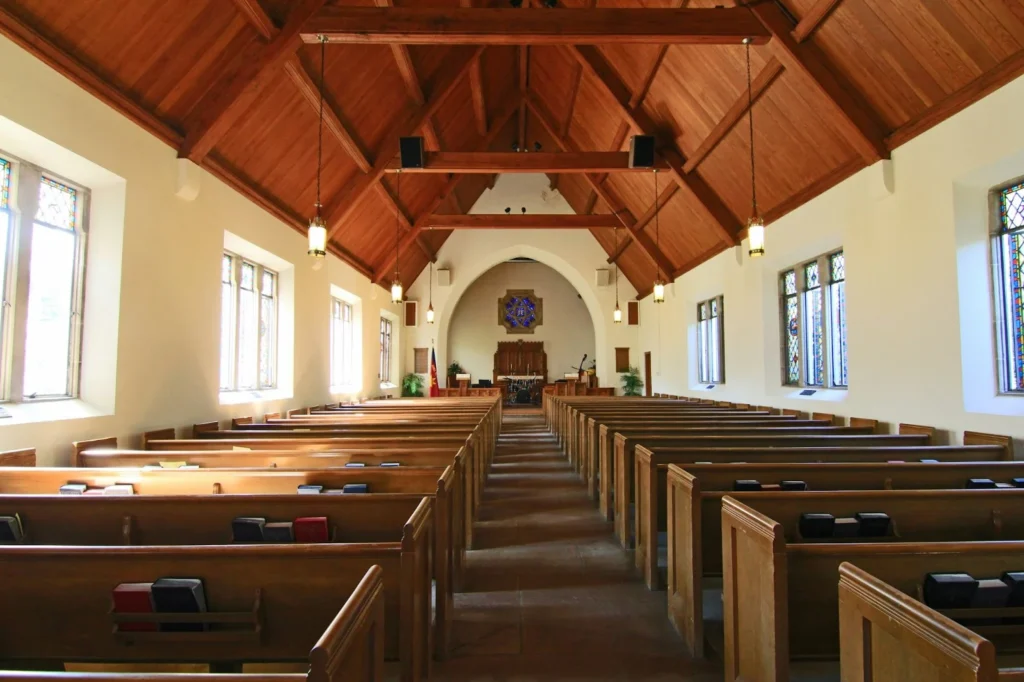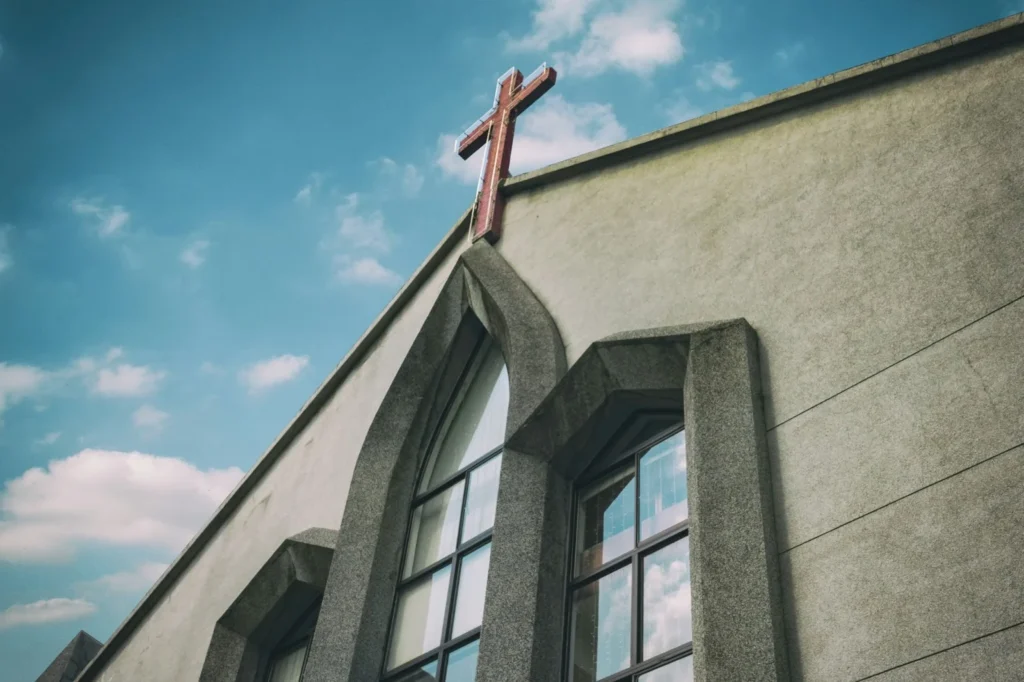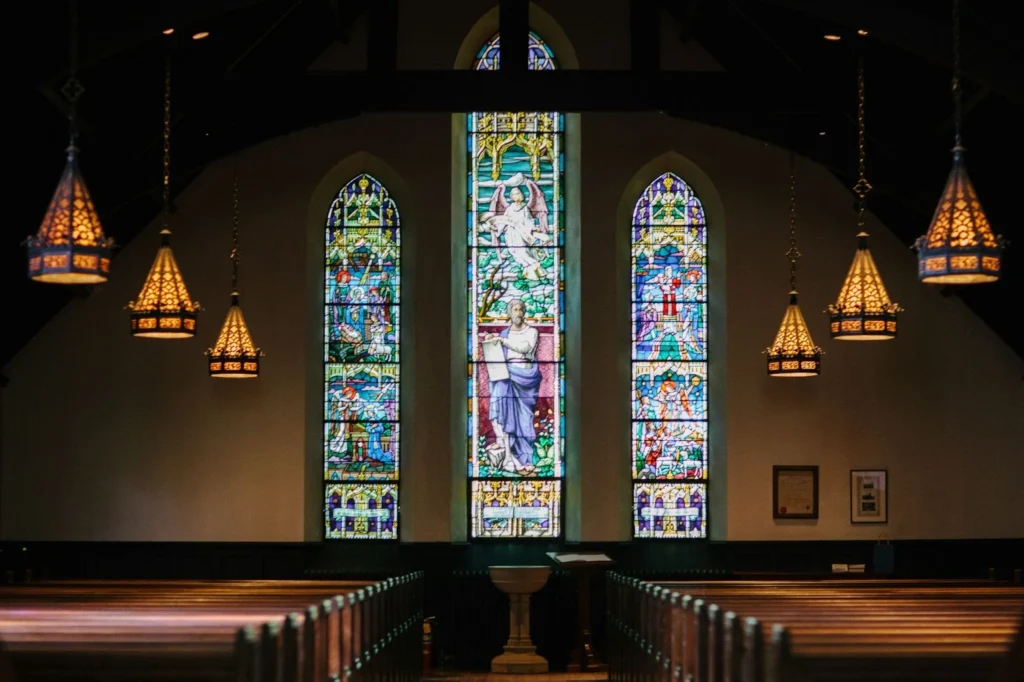Written By: Brad Campbell | April 5, 2025
Churches are places of worship, community, and refuge — but they’re not immune to security threats.
From vandalism and break-ins to more serious active threats, including targeted acts of violence, religious facilities face many of the same security risks as other types of commercial properties. That’s why these institutions must take proactive steps to improve security in churches, protecting their congregations and facilities from harm.
Fortunately, churches can implement several tried-and-true security measures to improve safety and security without compromising the welcoming atmosphere that makes them special.

The first step in improving security in churches is identifying potential risks and vulnerabilities. Common security concerns include:
A thorough security assessment can help church leaders determine the most effective solutions to address these concerns.
One of the most effective ways to improve security in churches is reinforcing doors and windows with Riot Glass security glazing.
Standard glass is highly vulnerable to forced entry, vandalism, and even ballistic threats. Upgrading to security glazing provides multiple benefits when it comes to protecting churches against such threats.

Churches can potentially be targeted for burglaries because they often house valuable equipment, donation boxes, and even historical artifacts. Standard window and door glass can be shattered in seconds, granting intruders quick access.
Riot Glass security glazing is impact-resistant and designed to withstand repeated blows from tools like hammers and crowbars, turning a church's doors and windows into barriers against forced entry that significantly delay or completely prevent entry.
Additionally, Riot Glass security glazing can be retrofitted into or onto many existing doors and windows using proprietary framing adapters, eliminating the need for costly and disruptive glass replacement. The barriers cover the existing glass, protecting it from impacts and breakage, all without reducing natural light transmission or visibility.
Unfortunately, churches can also be targeted for vandalism, whether due to ideological reasons or random acts of destruction.
Riot Glass acts as a protective shield against graffiti, thrown objects, and other forms of damage, keeping the church’s exterior intact and reducing repair costs. This can be particularly beneficial for churches with historic value, as Riot Glass can protect heritage window and door glass from irreversible damage.

Riot Glass J Series compression fit sub-framing is an ideal option for such historic churches. This non-invasive security framing system can be used to retrofit Riot Glass glazing into a building’s windows without drilling into the surrounding structure, thus preserving the original architecture.
In the event of a worst-case active threat scenario, ballistic-grade Riot Glass can provide an additional layer of security in churches.
Bullet-resistant Riot Glass can withstand gunfire, stopping bullets from specific types of firearms and giving congregants and staff critical seconds to take cover.
Most importantly, even if penetrated with bullets, Riot Glass doesn’t shatter. It remains a barrier to forced entry, preventing an attacker from breaking the glass to open a door from the inside. This protects church occupants and allows law enforcement time to respond and neutralize the threat.
Installing bullet-resistant security glass in key areas, such as entryway doors and sanctuary windows, can be a lifesaving measure in churches.
While upgrading windows and doors with Riot Glass is an essential step, churches should implement other security measures for comprehensive protection.
Restricting entry points is a simple but effective way to enhance security in churches. Consider:
Security cameras act as both a deterrent and an investigative tool. Positioning cameras at entrances, in parking lots, and in high-traffic areas helps identify suspicious activity and aids in prosecution for acts of vandalism or break-in attempts.
Pairing cameras with a modern alarm system that notifies authorities of break-ins or other emergencies further strengthens security.
Churches should establish and regularly practice emergency response plans for potential security threats. This includes:
A well-lit property discourages criminal activity. Churches can improve security by installing:
Balancing security in churches with their mission of being open and welcoming is challenging but crucial.
By investing in long-term, cost-effective solutions like Riot Glass and additional protective measures, churches can create a safe environment without compromising their sense of community.
Taking proactive steps now ensures that church members can gather, worship, and find peace knowing their place of worship is secure.
Ready to get started? Contact Riot Glass today for a free consultation.

HOW CAN WE HELP YOU?
